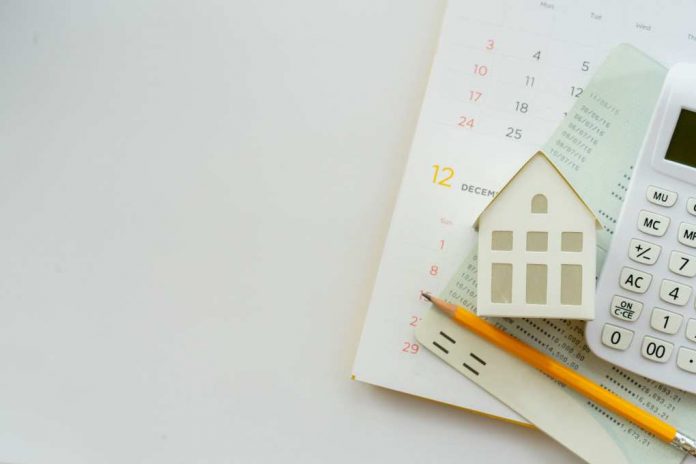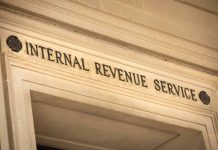
How does refinancing a home affect taxes? This is a question you must seriously consider before making the decision to refinance your mortgage. Sure, there are plenty of reasons to consider a refi – you can get a better deal and make lower monthly payments. However, there is a good chance that refinancing your home will lead to fewer deductions you’re allowed to take advantage of. With that said, you can potentially find other ways to offset the home refinance tax implications.
As you can see just from the section above, the mortgage refinance process isn’t as easy as you may think. In fact, it has a lot of components that you need to spend time and energy focusing on. When you get a mortgage refinance, you want to make sure you find the point where you break even. This can give you a better idea of how you should handle the mortgage refinance process. In order to have a clear understanding of this point, you need to understand the tax aspect to it! So, let’s not waste any time – how does refinancing a home affect taxes?
How Does Refinancing a Home Affect Taxes?
How does refinancing a home affect taxes, you ask? There are quite a few moving pieces here, so pay close attention as we dive in. There can be both positive and negative effects when you refinance a mortgage. There are multiple components of the refi that can have an impact on your taxes. To really answer the question – how does refinancing your home affect taxes – we need to talk about making deductions on your taxes as it pertains to a mortgage refinance.
Mortgage Refinance Tax Deductions
Prior to 2018, the Internal Revenue Service (IRS) provided borrowers the opportunity to deduct the interest paid on mortgage debt for up to $1 million. These homes must be either your primary home, secondary home, or both your homes combined. This was applicable for your mortgage refinance as well. The limit was $500,000 for an individual filer and $1 million for joint filers. Now, the limit is $375,000 for married individuals filing separately and $750,000 for joint filing.
Three Ways You Can Refinance Your Mortgage
There are multiple types of mortgage refinances – each offering its own unique pros and cons. Three of the most popular refinance options are:
- Rate and Term Refinance: This is a type of refinance option that allows borrowers to update the rate and term conditions of their mortgage. If your goal is to save money with a mortgage refinance, this is a great option to consider.
- Cash Out Refinance: Want to get cash out of your home? You can use your home’s equity to provide you extra cash to take out of our house with a cash out refinance! The loan amount that you get is based on the entirety of the home equity and loan, not just the remaining loan balance. This leaves you with extra money that you can use for whatever.
- Cash-In Refinance: This refinance option is the opposite of a cash out refinance. Oftentimes, borrowers opt for this type of mortgage option because they want to get lower interest rates that depend on loan-to-value (LTV) ratios. When your conventional loan is paid down to at least 80% LTV you may no longer need to have private mortgage insurance (PMI). You can save on these costs as well!
Cash out refinances have some special tax rules in place. The extra funds from this refinance must have been specifically used to either improve, build, or buy your primary or secondary home if it is considered tax-deductible. Since a cash out refinance provides you the opportunity to have the cash be used towards anything, you need to be wary. If the funds are used for anything other than towards your home, they will be considered a home equity loan when you file your taxes. The interest paid on home equity loans is deductible but for lower limits. Instead of interest up to $375,000 for married individuals filing separately and $750,000 for joint filing, the maximum is $50,000 for an individual filer and $100,000 for joint filers.
How Can You Use Cash-Out Mortage Refinance Funds To Your Advantage Come Tax Season?
While there are limits to how you can use your cash out refinance funds, there are still plenty of possibilities. You can deduct your mortgage interest on a cash out refinance in many different situations.
If you can increase the value of your home, add longevity to your home, or improve your home for the housing market then your home improvement can be considered a mortgage interest rate tax deduction. These types of home improvements are usually:
- Fencing in order to enhance the level of privacy.
- Roof repairs to improve durability.
- Creating additions to your home to increase the home size.
- Adding entertainment areas like a pool, hot tub, etc.
- Adding heating or cooling systems.
- Window replacement for better storm durability.
- Home security installation.
These must be home improvements, not just home repairs. Home repairs that are commonly confused with home improvements are:
- HVAC repairs.
- Broken window replacement (no improved durability to the home).
- Cosmetic changes like painting a bedroom.
These repairs are not considered tax-deductible because of the fact that they are not improvements. Make sure to always keep receipts of any improvement work that you get done so that you can easily deduct them during tax time.
Itemized Deductions and Mortgage Interest Deduction
It’s important to note that a mortgage refinance can substantially lower your total amount of tax deductions. The mortgage refinance means that you are responsible for less interest. Having a lower interest rate means you have less overall mortgage interest that you can deduct during tax season. The difference can be pretty stark. Not only are you dealing with less interest due to improved mortgage rates, but you could also save on interest with your loan term. When you shorten your loan, you handle your debt in less time. For example, if you have a 30-year loan with 22 years remaining and refinance to have 15-year loan terms, you cut the amount of time that you will be repaying the loan down drastically. This means you will have less mortgage interest that you deal with over the years.
When handling a mortgage refinance, it can be very helpful to have a tax advisor help with the process. They can help you through any confusion you may have and could even show potential tax opportunities that can save you more.
What are the Tax Implications of a Mortgage Refinance?
The Tax Cuts and Jobs Act (TCJA) of 2017 was designed to reduce tax rates and change income bracket guidelines. This meant that there are now more strict limits on the amount of interest that can be deducted during tax season. Mortgages of up to $750,000 are the only home that have deductible interest. Homes over $750,000 do not qualify. You have the opportunity to handle your refinance as tax-favored home acquisition debt.
Types of Tax Deductions
The TCJA really impacted the lay of the tax land. Deductions for homeowners changed and now homeowners can expect:
- Head of Household: $18,350
- Individuals: $12,200
- Married Couples Filing Separately: Between $12,200
- Married Couples Filing Jointly: $24,400
This is the amount for standard deductions. However, it may be worth it to itemize your deductions. If your itemized deduction is worth more than your standard deduction then that may be the signal you need to itemize. You can discuss interest deduction, tax advice, and more with a tax expert in order to get a clear picture of what would be best for your financial situation.
Is Homeowners Insurance Tax Deductible?
Unfortunately, homeowners insurance is not tax deductible for the most part. However, there are other deductions that you can document and itemize during tax season. That is why it is important to keep track of your expenses.
Are Closing Costs Tax Deductible?
Closing costs are not considered tax deductible. There are a variety of closing costs that you may encounter but some of these expenses may include:
- Attorney Fees
- Administrative Costs
- Appraisal Fees
- Property Title Search Fees
- Refinance Application Fees
- Inspection Fees
- Recording Fees
- Legal Fees
Is a Rental Property Tax Deductible?
There may be costs that you can deduct with your rental property. Rental property home improvements and potentially some insurance costs could be considered tax deductible. You want to consult an expert when trying to decide what rental costs may be considered tax deductions.
What are Mortgage Points?
A mortgage point (commonly referred to as a discount point) is the amount that you pay to reduce your interest on your mortgage. 1% of your loan amount is worth 1 mortgage point. Let’s try an example. If your mortgage is worth $150,000 then one point would cost $1,500. Borrowers can pay the points during the close. The lender is the one that will determine the cost of points that you purchase and the costs get dealt with at closing.
Each mortgage point that you purchase determines the amount that your interest rate will reduce. Every financial institution is unique. That means that the amount that the point reduces your interest rate will vary. However, you can typically see the discount per point at .25% worth of rate reduction. Lenders usually set a limit for the amount of points that can be bought by the borrower.
Some Advantages of Mortgage Points
Borrowers purchase mortgage points in order to reduce their interest rate and in turn save on the loan. Even though mortgage points can have a hefty cost upfront during the close, it may be worth it over the lifetime of the loan. What may cost a couple of thousand dollars now can save you thousands in the long run. However, points only make sense in certain mortgages. If you refinance your home before you reach the break-even point of your refinance then it may not be worth the costs.
Borrowers also consider mortgage points as a way to reduce the amount of their monthly payments. The upfront cost means a reduced interest rate which means less money paid monthly. Mortgage points can also earn tax deductions! The best way to understand how mortgage points can impact your tax deductions is to talk to a tax expert when tax time rolls in.
When is a Good Time to Purchase Mortgage Points?
There are countless scenarios where purchasing mortgage points makes sense. Regardless of the specific reason, you want to have an idea of some important pieces of information. As long as you know your break-even point and when you will move out of the house, you can make a decision about purchasing mortgage points.
Does Refinancing Affect Property Taxes?
Another very important consideration is how your refinancing endeavors affect future property tax payments. Depending on when you refinance your mortgage, you may have to pay property taxes at the time of closing. If this happens, no need to worry! You may have the opportunity to deduct your property taxes on the next income tax return.
How Long After My Mortgage Refinance Can I Claim Any Tax Deductions?
Fortunately, you may have more time than you realize. A majority of closing costs can be deducted over the course of your refinance loan. You need to look at your loan terms. If you refinanced your loan for a 15-year term, that means that your closing cost deductions should be spread out for the course of those 15 years.
Does Refinancing Help Your Tax Return? Does it Affect Your Taxes?
A mortgage refinance doesn’t necessarily help or hurt your tax return. Instead, it changes limits and guidelines. This means it does have an effect on your taxes. Mortgage interest, interest deduction, the type of refinance, and more all can have an impact on your taxes. That’s why it is important to have the help and guidance of a professional.
Do You Have to Pay Taxes When You Refinance Your Mortgage?
It is a misconception that the borrower is not responsible for taxes when they get a mortgage refinance. In order to make sure that you are properly handling your taxes, you must speak to a tax professional. They can break down what a mortgage refinance means for your tax situation.
Thinking About Getting a Mortgage Refinance?
You’re not alone! Due to the fact that mortgage rates are at a near all-time low, many borrowers are considering refinancing their mortgage.
How to Start Your Refinance Journey
You need to understand your current financial situation and compare lenders. From there, you can find the financial situation that you want to borrow. Here they can discuss important factors like your break-even point, other financials, and more. It is good to have important documentation ready like all relevant documents about your mortgage, financial verification documentation like pay stubs and bank statements, as well as proof of identity. You may even be able to find a lender that can prequalify you with a soft inquiry so that you don’t need to have a hard inquiry on your credit report until you find the right refinancing lender. Take your time, talk to professionals, and try to ensure you make an educated decision.
Final Thoughts On How Refinancing A Home Affects Your Taxes
How does refinancing a home affect your taxes? At this point, you know all about the various ways that a mortgage refinance can affect your taxes. The IRS has set limits for the amount of interest that can be deducted. The limit is $375,000 for married filing separately and $750,000 for joint filing. There are plenty of aspects to a mortgage refinance that can be considered tax deductions. Property taxes, mortgage points, your interest rate and more may be able to be deducted. Cash-out refinancing will have different guidelines than other types of refinances.
You may also see a reduced amount of deductions that you can qualify for when you get a mortgage refinance. The reduced amount of the loan and stricter limits may mean that you can deduct less during tax time. Mortgage interest, interest deduction, the type of refinance, and more all can have an impact on your taxes. It may be beneficial to do a standard deduction if your itemized deduction is less. Regardless, it is always best to speak to a tax professional in order to get a clear idea of the type of tax situation you are dealing with. It is worth spending the extra money to make sure you fill out your taxes properly.
We hope this article helped answer the question you came here with – how does refinancing a home affect taxes? If not, we encourage you to reach out to a tax specialist in your zip code. Or, consult your mortgage lender. While you may assume your mortgage lender won’t want you to refinance, that isn’t necessarily the case. They are on your team – so don’t be afraid to utilize them! Either of those two professionals will be able to provide you with a specific answer depending on your unique tax situation. Form there, you can determine whether refinancing your mortgage makes sense for you or not. Want to learn more? Check out our article on how long it takes to refinance a house.
References:
https://www.mortgageloan.com/tax-rules-for-home-equity-loans
https://www.mwellp.com/tax-implications-of-refinancing-your-home/
https://www.taxpolicycenter.org/briefing-book/what-standard-deduction
https://www.rocketmortgage.com/learn/what-are-mortgage-points
















